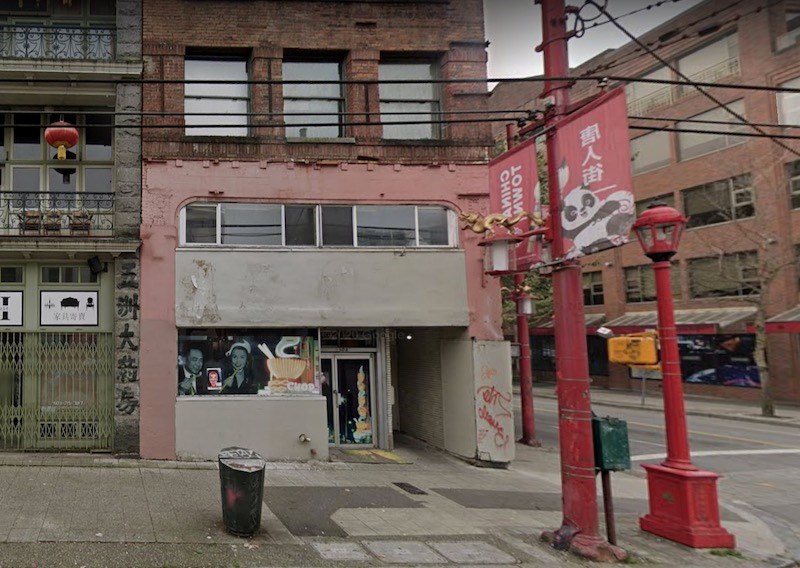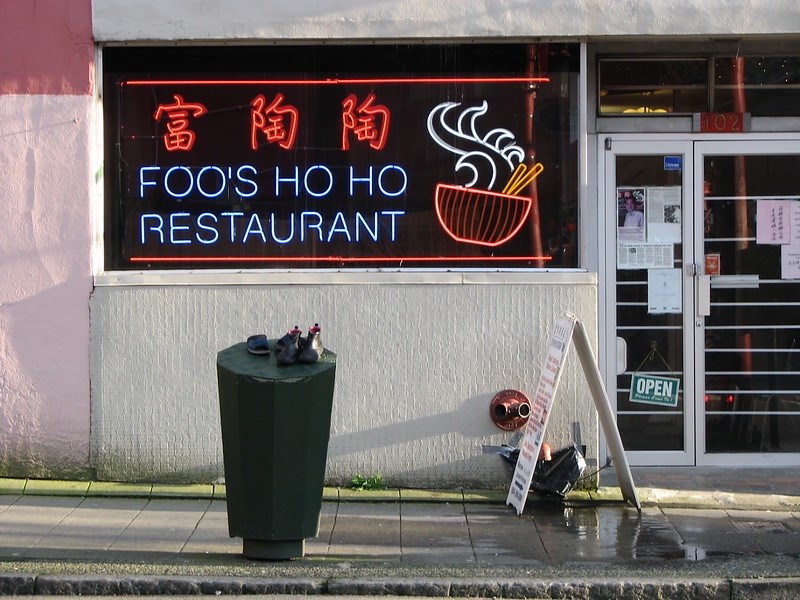The shimmering outside Foo's Ho Ho in Chinatown were like a beacon in the neighbourhood for decades.
The landmark restaurant, which is thought to have been the oldest Chinese restaurant in Vancouver, opened for business by the Quon family in 1954 on Pender at Columbia. Generations of locals knew to go to the spot with the illuminated bowl and chopsticks for Cantonese-style classics. Even as ownership - and the address - changed, the name, the signature neon iconography, and the public's fondness remained constant.
The restaurant was initially called the Ho Ho - it "did not become Foo's Ho Ho until 1998, when Joanne Lam Sam and her late husband James took over the business," .
Closed for over a decade now, however, Foo's Ho Ho is getting ready to be reborn at 100 East Pender St. The owner is Carol Lee, a prominent figure in Vancouver's Chinatown; Lee, who was among those named on the list of this year's Order of British Columbia honorees, is the Chair of the Board of Directors of the . She also owns the nearby Chinatown BBQ, a popular restaurant serving traditional fare in a cozy, no-frills atmosphere. In June 2021, Lee told Glacier Media of the plan to open Foo's Ho Ho again.
Lee confirmed via email with Â鶹´«Ã½Ó³» that the project is underway with an aim of having the new Foo's open in early 2022. We can expect more details to come soon about the endeavour to bring back Foo's Ho Ho.
Nearly 10 years ago, Foo's Ho Ho was given the bittersweet nickname "the last restaurant in Chinatown." The Sam family was struggling to keep the veteran spot afloat in its final years.
The building that has housed - and will house again - the storied Chinese restaurant, has .
"Constructed in 1911-12 for Loo Gee Wing, a leading Chinatown merchant," the building has further heritage value "found in the long association of the building with the Ho Ho Restaurant (ground floor and mezzanine) and the Sun Ah Hotel (upper floors)."
 100 East Pender Street. By Google Street View
100 East Pender Street. By Google Street View"The eatery represented one of the numerous restaurants and curio shops that opened in Chinatown after World War II to cater to non-Chinese curiosity and tastes. It indicates an important warming in attitudes towards the city’s Chinese, as well as a new phase in Chinatown’s commercial development," notes Canada's Historic Places of the Ho Ho.





